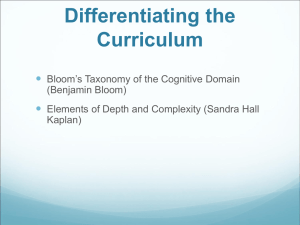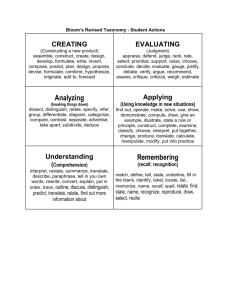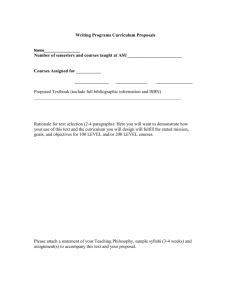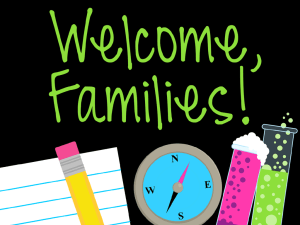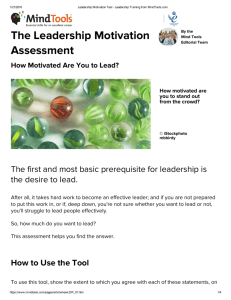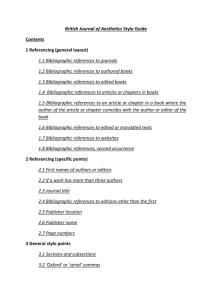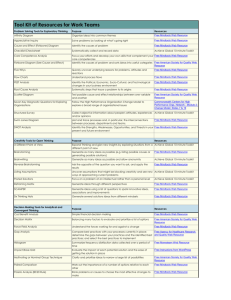Effective Reading Skills: Study Guide for University Students
advertisement
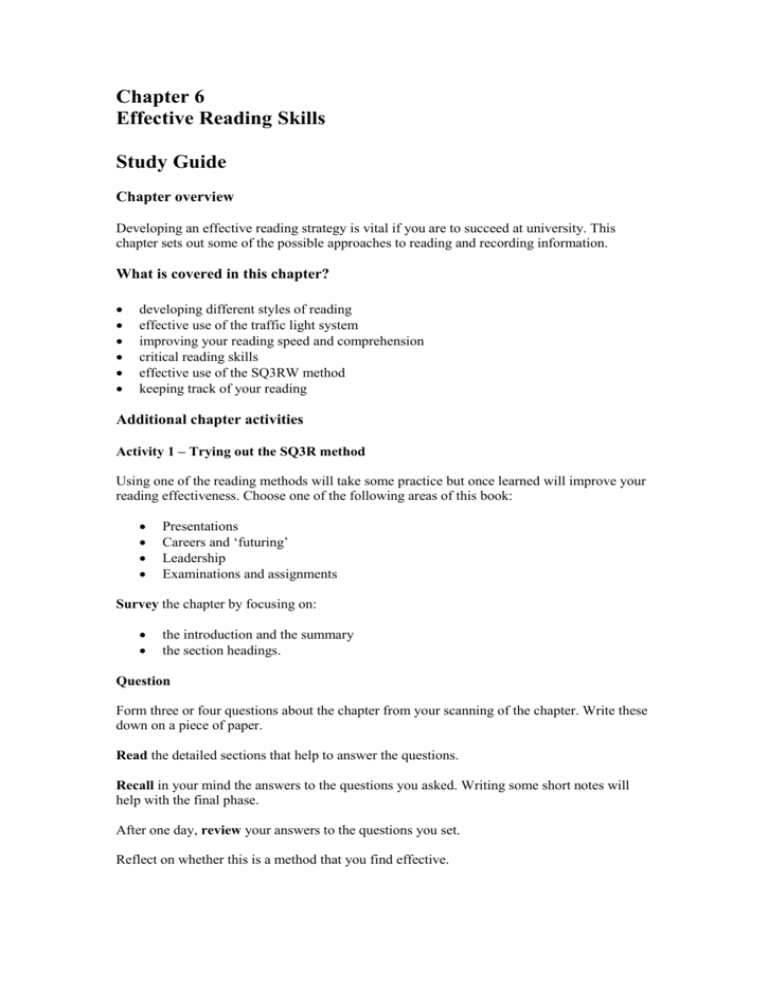
Chapter 6 Effective Reading Skills Study Guide Chapter overview Developing an effective reading strategy is vital if you are to succeed at university. This chapter sets out some of the possible approaches to reading and recording information. What is covered in this chapter? developing different styles of reading effective use of the traffic light system improving your reading speed and comprehension critical reading skills effective use of the SQ3RW method keeping track of your reading Additional chapter activities Activity 1 – Trying out the SQ3R method Using one of the reading methods will take some practice but once learned will improve your reading effectiveness. Choose one of the following areas of this book: Presentations Careers and ‘futuring’ Leadership Examinations and assignments Survey the chapter by focusing on: the introduction and the summary the section headings. Question Form three or four questions about the chapter from your scanning of the chapter. Write these down on a piece of paper. Read the detailed sections that help to answer the questions. Recall in your mind the answers to the questions you asked. Writing some short notes will help with the final phase. After one day, review your answers to the questions you set. Reflect on whether this is a method that you find effective. Activity 2 – Speed-reading Try out this speed-reading test. It will measure how fast you read and how well you comprehend. It will improve the speed that you read. It can be found at http://www.readingsoft.com/ Activity 3 – Keeping track of what you read You may not have developed a system to keep track of what you read. This exercise starts to address the need to keep good records of your reading and learning. Set out to read five articles or book chapters in the coming week. Use the SQ3RW method to write about your reading, keeping notes using a pen and paper. At the end of the week you should have a least five pieces of paper with notes about your reading and you may have considerably more. Type up these notes into Word and make sure you keep an accurate record of the bibliographic details of the books or articles. Your challenge now is to devise a computer-based system to store this information and the future information about your reading. There are suggestions for how to do this starting on page 143. If you have the time and the inclination, a Microsoft Access database will be the most effective way to do this. Learning diary reflections Reading effectively will make a huge difference to your academic performance. Effective reading takes time to develop and requires reflection to improve. Learning diaries are a good place to express your thoughts and reflections. In this chapter you might want to think and reflect on: Do I understand the different types of reading I will need to do? Would the traffic light system of reading work for me? How fast do I read? What would be the benefits of reading faster and more effectively? Would the SQ3RW reading method be the best for me? What development activities could I carry out so that I read faster and more effectively? How well do I switch my reading style in relation to different types of reading? Am I critical enough when I read? How could I read with a more critical eye? Do I keep an effective tracking system of the things I have read? Do I have a correct and proper bibliography of all my reading? Should I be using bibliography software? Test your learning Multiple choice questions 1 The traffic light reading system will make you more effective because… (a) (b) (c) (d) 2 It encourages different reading styles. It is bright and engaging. It encourages detailed reading and understanding. It is something new and different. Most students can easily train themselves to read at speeds of… (a) (b) (c) (d) 3 200 words per minute 10,000 words per minute 50 words per minute 1,000 words per minute What often happens to comprehension when you read faster? (a) (b) (c) (d) It goes up. It goes down. It stays about the same. It is considerably worse. Please refer to the ‘Study Guide: Answers’ document, also on the student support site, for answers to all of the quizzes in the study guides. Reflective question Try to regularly reflect on the effectiveness of your reading skills. It might be helpful to have a set of criteria to judge yourself against. You can develop your own, but to get you started try rating your skills against this set of criteria: reading speed comprehension appropriateness of reading approach clarity and accuracy of reading notes recall of reading after one week and one month Chapter summary Read efficiently by using different types of reading: skimming detailed reading critical reading speed-reading. Use the traffic light system to select and read books and journals. Read faster to be more effective. Use the adapted SQ3RW method: survey question read recall review write. Read different sources in different ways: textbooks journal articles reports critical articles. Devise a system for keeping track of your reading: pen and paper notes Word documents OneNote file spreadsheet database. Use a standard form of recording bibliographic data: bibliographic software Word 2007. Chapter web links Try this easy to use free speed reader trainer: http://www.spreeder.com/ CIPD website address: http://www.cipd.co.uk/ Speed reading website from Mindtools: http://www.mindtools.com/speedrd.html Speed reading test: http://www.readingsoft.com/
